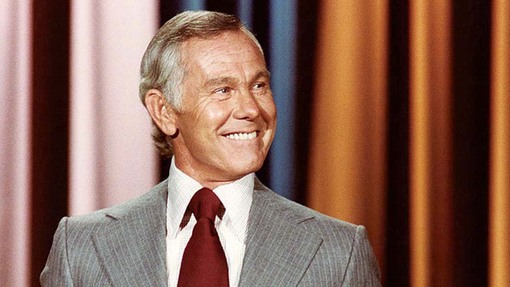Exploring the Complex Legacy of Johnny Carson
Once upon a time, Burbank Studios’ Stage 1 was the epicenter of late-night entertainment, where the legendary Johnny Carson dazzled audiences with his wit and charm. Carson wasn’t just a comedian; he was a monumental figure in American pop culture. “Johnny Carson was the biggest star in America,” says writer Mike Thomas. “No movie star or rock star could rival his fame, as he graced our screens night after night.”
In his recent biography titled Carson the Magnificent, Thomas chronicles the life of Carson, initially started by his late friend Bill Zehme. The influence of “The Tonight Show” host was profound, with 17 million Americans tuning in regularly, often from the comfort of their beds. “Johnny provided comfort at the end of the day,” Thomas notes, explaining how audiences found solace and laughter, even as they battled fatigue.
Carson’s era saw him setting the national agenda throughout the 1960s, ’70s, and ’80s. His humor and commentary sparked conversations in homes and workplaces alike. “What Johnny said on his show became water cooler talk the following morning,” Thomas adds. Hosting “The Tonight Show” for three decades, Carson emerged as the undisputed king of late-night television.
A Launchpad for Comedians
The significance of an appearance on Carson’s show was enormous. Comedian Robert Klein, who made 97 guest appearances, reflects on the impact: “Johnny was one of the most pivotal figures in my career. The opportunities he created were unparalleled.” For Klein, being on “The Tonight Show” was vital for any comedian’s career trajectory.
Fellow comedian George Wallace recognized the importance of being featured on Carson’s stage, describing it as a rite of passage in the comedy world. However, moments of anxiety marked these performances, as comedians awaited Carson’s approval to join him at the couch—an invitation that signaled they had officially made it. “Being called over meant you were in the club,” Wallace states, still reflecting on his experiences four decades later.
The Duality of Johnny Carson
With immense fame often comes complexity. Thomas explains that Carson exhibited two sides: the charismatic performer adored on-screen and a more introverted figure off-screen. “Some of his aloofness was simply a product of him being an introvert,” Thomas notes. In a 1979 profile on 60 Minutes, Carson himself admitted to this duality, stating that his perceived arrogance was more a manifestation of shyness.
Carson’s personal life, marked by four marriages, mirrored his struggle with intimacy and connection. “He needed companionship but struggled to maintain lasting relationships due to his behavior,” Thomas emphasizes. Yet, actress Dyan Cannon—a former wife—paints a different picture: “He was never aloof or cold; he was warm and open. People approached him as they would family.”
A Unique Connection
One memorable exchange occurred in an October 1985 episode of “The Tonight Show,” when Cannon playfully held Carson’s hand, revealing a familiarity that flustered even him. Their bond transcended physicality, as Cannon reflects on their relationship: “It was spiritually intimate, a real love affair without physical intimacy.”
“Isn’t that interesting?” she muses, hinting at the depth of their connection. “Maybe Johnny was just a reflection of the complexities within all of us.”
A Nonpareil Legacy
In an era defined by fragmented media consumption, Thomas argues that there will never be another figure like Carson. “Today, we’re siloed, watching content that merely confirms our biases,” he says. The communal experience of watching a show live and discussing it the next day has faded—a magic Carson once fostered, illustrating the profound influence he had on American culture.
| Aspect | Details |
|---|---|
| Show Duration | 30 years |
| Average Viewership | 17 million per episode |
| Guest Appearances by Robert Klein | 97 |
| Marriages | 4 |














